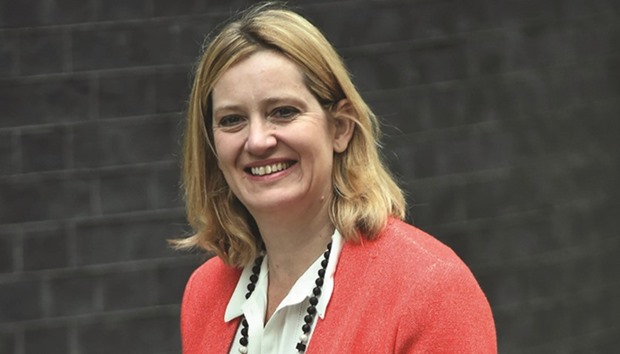Amber Rudd is facing growing calls to clarify the extent of her involvement in tax havens following the Guardian’s disclosure that she had been a director of two companies in the Bahamas.
The home secretary’s name appears in a leaked list of directors of companies from the Caribbean tax haven, which was obtained by the German newspaper Suddeutsche Zeitung and shared with the International Consortium of Investigative Journalists.
Rudd served as a director of the Advanced Asset Allocation Fund and Advanced Asset Allocation Management from 1998 to 2000, according to the documents.
A spokesperson for Rudd said that her business career prior to politics was public knowledge, but did not respond to detailed questions about whether the companies had paid UK tax or whether Rudd had invested in them.
Tim Farron, the leader of the Liberal Democrats, called for Rudd to elaborate upon what her precise role in the offshore structure had been.
“We cannot expect hardworking members of the public to pay their tax bills when they feel that those at the top of our society can use offshore schemes to avoid paying their fair share,” he said.
“Rudd may have done nothing wrong but refusing to clarify her role in setting up this scheme undermines public trust in our tax system. She has a duty to be totally transparent if she wants the power to make laws that govern us all.”
Jon Ashworth MP, the shadow minister without portfolio, described Rudd’s appearance in the leaked Bahamas documents as embarrassing.
“Earlier in the year Rudd was sent out to defend David Cameron amid controversy over offshore holdings,” he said in a statement.
“At the time she trumpeted transparency yet she made no mention of her own situation, which was surely relevant to claims amid calls for openness at the top of the Tory party. People will be forgiven for wondering what the true picture is and they deserve an answer from Rudd.”
Speaking on the BBC’s Daily Politics show, Green MEP Molly Scott Cato called for Rudd to make a fuller statement explaining the purpose of the directorships and whether she had personally profited.
Scott Cato criticised Rudd for failing to disclose the Bahamas links when defending Cameron after he admitted he had previously held shares in his father’s offshore investment fund, which was included in the Panama Papers.
“(Rudd) didn’t say at that stage that she also had been involved in business in tax havens and I think she needs to explain why she didn’t,” she said.
The tax transparency advocate Richard Murphy said Rudd’s new role as home secretary, to which she was appointed earlier in the year by Theresa May, was fundamentally in conflict with her past use of offshore companies.
“The contradictions between the task of the home secretary and the role of secrecy jurisdictions is immediately apparent: one is tasked with upholding the law that secrecy jurisdictions and their users seek to subvert. It is very hard to think of roles more juxtaposed,” he wrote.
Murphy said the fact that Rudd had never acknowledged her previous connection to the offshore world called into doubt her suitability for her present government position.
“I will be explicit: you cannot, in my opinion, believe that secrecy jurisdictions like the Bahamas have a valid role when that role is to undermine the rule of law in other countries and also be UK home secretary.”
The Guardian approached Rudd on a number of occasions earlier this week but was told she did not intend to comment further.

u201cRudd has a duty to be totally transparent if she wants the power to make laws that govern us allu201d
